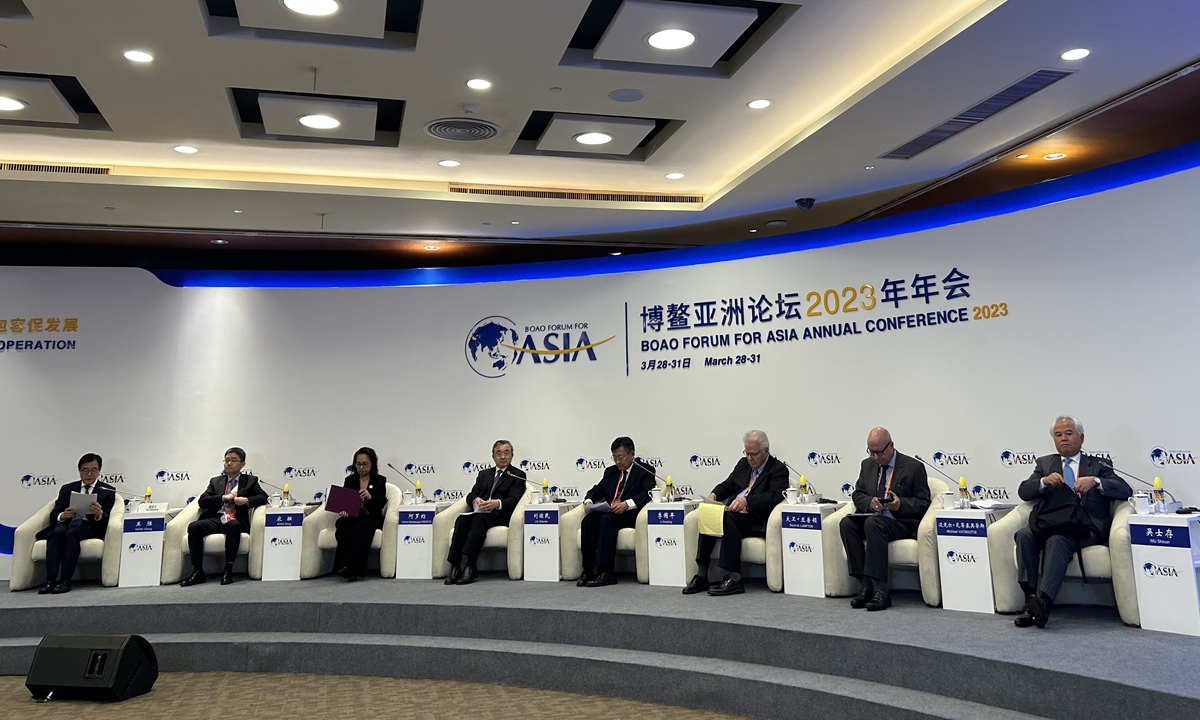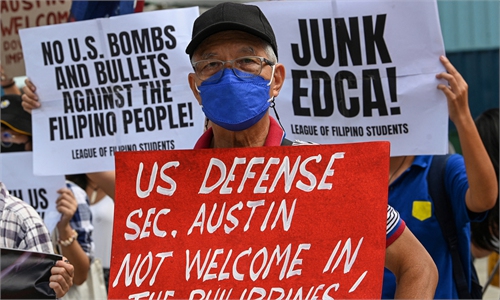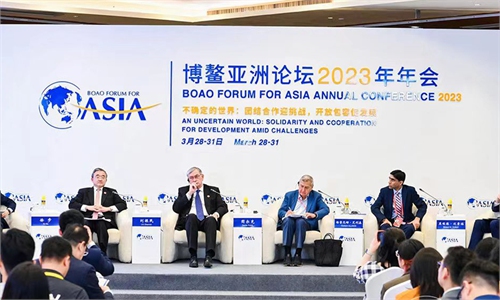CoC negotiation window narrowing amid external disturbance in S. China Sea
CoC negotiation urgent as windows for talks narrowing

A sub-forum themed "Building an Order of Cooperation and Security in the South China Sea" at the Boao Forum for Asia 2023 is held on March 30, 2023 in South China's Hainan Province. Photo: Zhang Han/GT
The window for negotiation on a Code of Conduct (COC) for the South China Sea has been narrowing amid the increasingly complicated and intense situation on the sea, delegates said at a sub-forum of the Boao Forum for Asia on Thursday, calling on regional countries to enhance solidarity and stay alert to external forces.
The sub-forum was themed "Building an Order of Cooperation and Security in the South China Sea," and the guest speakers included Chinese diplomats, a former Philippine leader, a representative from an NGO and various scholars.
As the first speaker, former Philippine president Gloria Arroyo reiterated that maritime issues do not compromise the totality of bilateral ties between China and the Philippines, and both countries are using direct dialogue mechanisms to manage differences. The Philippines also maintains its support for ASEAN centrality.
However, Arroyo also brought up the arbitration's ruling in 2016.
Tan Qingsheng, a representative from the Chinese Foreign Ministry's boundary and ocean affairs department, stated China's consistent and clear stance that China neither accepts nor recognizes the arbitration and will never accept any claim or action based on it.
Wu Shicun, another guest speaker and founding president of the National Institute for South China Sea Studies, told the Global Times that judging from the complex situation in the South China Sea, there are growing concerns that the Philippines may align more toward the US.
In his speech, Wu called on regional countries to make joint efforts to prevent the militarization of the South China Sea, and be particularly cautious about inviting external forces into the region.
The Philippines has just approved the opening of four additional military bases for the US and announced it would be holding the largest-ever drills with the country in April. It is also enhancing military ties with Australia, another US ally that has ambitions in the South China Sea.
Multiple speakers expressed the hope that the parties involved try their best to rule out disturbance from external forces and accelerate the CoC negotiation process.
Michael Vatikiotis, senior advisor at the Geneva-based Center for Humanitarian Dialogue, a non-profit organization for mediation to avoid armed conflicts, said at the sub-forum that unlike people who are pessimistic about the CoC, he saw the negotiation itself as a process of building confidence among countries, allowing them to communicate and discuss on divergence. The process is not less important than the product, he added.
Liu Zhenmin, former under secretary-general of the UN, stressed that regional countries should understand the urgency of CoC negotiations, as the window continues to narrow against the backdrop of the US' assertive push for its Indo-Pacific Strategy and non-regional countries' attempts to intervene in related affairs.
Wu told the Global Times that as the Philippines is turning from a supportive to a more ambiguous attitude on the CoC, it cannot be ruled out that the Philippines will drag out or even create barriers for negotiations in the future.
In past decades, the overall stability in the South China Sea and the prosperity based on it have benefited the whole of China and Southeast Asia. Forum attendees shared the consensus that cooperation on ecological protection, disaster reduction and maritime connectivity have been fruitful and should be steadily moved forward. Some also suggested more dialogue mechanisms in second-track diplomacy, such as between think tanks and NGOs, in order to enhance mutual understanding and reduce miscalculations.
Tan Qingsheng told the Global Times that tension and conflicts stem from distrust, and that in such cases, it is important that communication can happen at various levels between different groups to dispel distrust and ease tensions.


